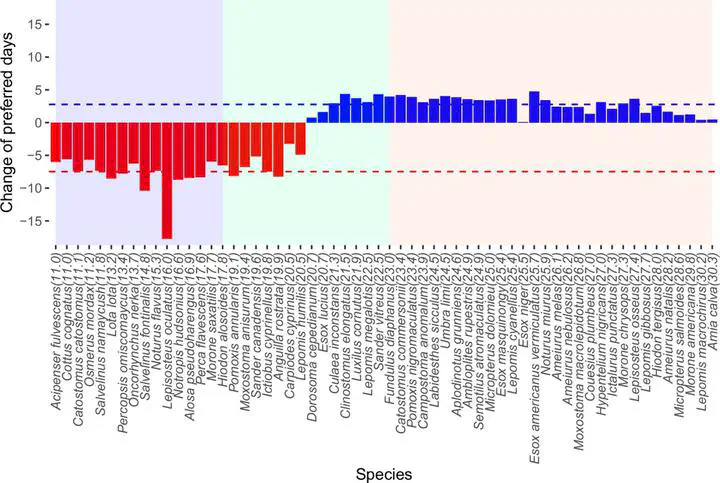New Nature Communications paper on asymmetric impacts of climate change

Check out our new paper in Nature Communications that examines how thermal habitat for different fish species is altered by climate change.
In a newly published article led by Luoliang Xu, we find that the rates of habitat losses and gains for coldwater fish (like trout or walleye) and warmwater fish (like bluegill and bass) are not changing symmetrically. Instead, coldwater species are losing more of their thermal habitat than warmwater fish are gaining. This may be because climate change is increasingly homogenizing lake environments, and that warmwater species are only gaining thermal habitat during the hottest months, while coldwater fishes lost habitat during more of the year. This means that losses of cold- or coolwater species may not be offset by gains in warmwater species, which means we may need to consider how to protect resilient coldwater populations to maintain fisheries diversity on the landscape.
Image: Fig. 1 from Xu et al. 2024, Change of species’ averaged preferred days between 1980–2000 and 2001–2021.